See also
- Botijo, a traditional Spanish porous clay container designed to contain water
Botija is a musical instrument.
Botija may also refer to:

Quiéreme Tal Como Soy is the eighteenth studio album by singer Lucero. It was released in September 2006. The album contains reworked versions of some of her greatest hits written by Rafael Pérez Botija and covers of music by Rocío Dúrcal, Mocedades and José José. On 29 November 2006 the album was certified in Mexico as gold album, after selling 100,000 copies only in Mexico.
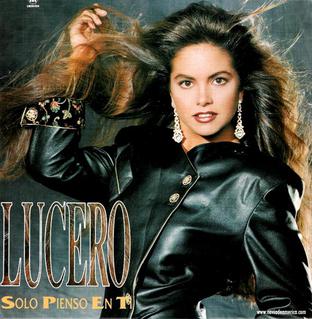
Sólo Pienso En Ti is the eighth album from Mexican pop music singer and actress Lucero. It was released in 1991, selling til today more than 5 million copies. The first single, "Electricidad", went to No. 1 in Mexico in just three weeks. The song was so hot that the second single "Ya No" was No. 2 when the former were still at the top of the charts. Eventually "Ya No" hit the No. 1 spot for 5 weeks, until Luis Miguel's "Inolvidable" debuted at the No. 1. The album was the first of many collaborations with Rafael Pérez Botija.
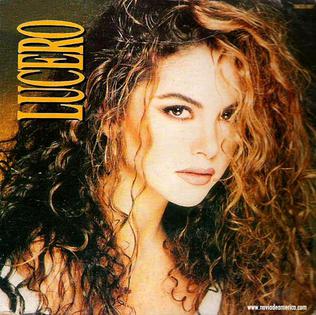
Lucero is the tenth album from Mexican pop music singer and actress Lucero. It was released on 1993 and is often cited as Veleta.

Siempre Contigo is the twelfth album from Mexican pop music singer and actress Lucero. It was released in 1994, selling more than 700,000 units till today in Mexico and United States. It reached #15 in Billboard Top Latin Albums.
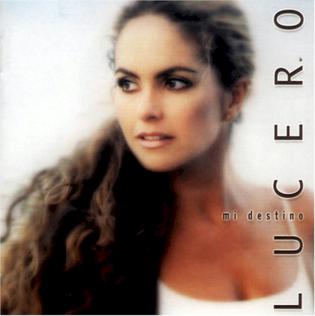
Mi destino is the fifteenth album from Mexican pop music singer and actress Lucero. It was released on 21 July 2000.
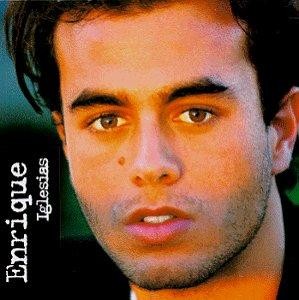
Enrique Iglesias is the eponymous debut studio album recorded by Spanish singer-songwriter Enrique Iglesias, it was released by Fonovisa on 21 November 1995. The album was a success and topped the Latin charts. It also won the Grammy Award for Best Latin Pop Album at the 39th Annual Grammy Awards on 26 February 1997. The album received a Gold certification in Portugal after a weeks of sales, and has sold more than 6 million copies worldwide. In the United States it was certified Platinum on 18 November 1996, becoming one of the best selling latin albums of all times in that country. All singles of the album hit the number-one spot in the Billboard Hot Latin Tracks chart: "Si Tú Te Vas", "Por Amarte", "No Llores Por Mí" and "Trapecista", the most for any Latin album, beating Selena and Jon Secada with four chart toppers, each.

"Por Amarte" is the title of the third single released by Spanish singer-songwriter Enrique Iglesias from his eponymous debut studio album Enrique Iglesias (1995), It was released by Fonovisa on 8 January 1996.
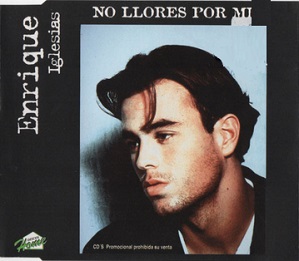
"No Llores Por Mí" is the fourth single released by Spanish singer-songwriter Enrique Iglesias from his eponymous debut studio album Enrique Iglesias (1995), It was released by Fonovisa on 6 May 1996.

"Miente" is a song by Spanish singer Enrique Iglesias from his second studio album, Vivir (1997). The song was written and produced by Rafael Pérez-Botija. It was released as the third single from the album in 1997. An uptempo pop power ballad backed by a piano and percussion, the song deals with the singer being in denial about a relationship ending.

"Lluvia Cae" is the title of the fifth single released by Spanish singer-songwriter Enrique Iglesias from his second studio album, Vivir (1997), It was released on 13 October 1997.

Reflexiones (Reflections) is the 20th studio album recorded by Mexican performer José José, It was released by RCA Ariola in 1984. It was written, produced and arranged by Spanish producer Rafael Pérez-Botija. This album became the first number-one set on the Billboard Latin Pop Albums, received a platinum certification in Mexico for sales of 250,000 units, and at the Grammy Awards of 1986 it was nominated for Grammy Awards for Best Latin Pop Performance losing to Es Fácil Amar by Lani Hall.

Promesas (Promises) is 21st studio album recorded by Mexican performer José José, It was released by RCA Ariola in 1985. It was written, produced and arranged by Spanish producer Rafael Pérez-Botija. This album became the second number-one set on the Billboard Latin Pop Albums by the artist and at the Grammy Awards of 1987 the single "Pruébame" was nominated for Best Latin Pop Performance, losing to "Le Lo Lai" by José Feliciano. For this album the singer received two Billboard awards: Top Latin Artist and Top Latin Album of 1985.

Algo de mi vida is an album by Mexican pop singer Yuri. It was released in 1988. The album was edited by EMI Capitol when Yuri left the company to join CBS Records. The company decided to include unpublished songs that were not incorporated in any previous releases, with the exception of the track "Amores clandestinos" included in her album Aire. This album also has a speech of Yuri where she relates the beginning of her career, it also has several covers like "Maquillaje" (Make-up) of Mecano, "No sucederá más" from the Italian song "Non succedera più" of the singer Claudia Mori, "Cassette de amor" of Dulce and "Frente a frente" of Jeanette. There was a single from this album, but it was edited only in Spain.
Soy Así is 23rd studio album recorded by Mexican performer José José, It was released by RCA Ariola in 1987. It was written and produced by Spanish producer Rafael Pérez-Botija. This album became the fourth number-one set on the Billboard Latin Pop Albums by the artist and at the Grammy Awards of 1989 was nominated for Best Latin Pop Performance and for Pop Album of the Year at the 1st Lo Nuestro Music Awards.

"Soy Así" is a ballad written and produced by Spanish composer Rafael Pérez-Botija and performed by Mexican singer José José. It was released as the first single from his twenty fourth studio album of the same title (1987). This song became the second number-one single by the artist in the Billboard Hot Latin Tracks chart, after the single "¿Y Quién Puede Ser?" two years before. In 2005, Mexican late "singer" Valentín Elizalde recorded a cover version of the single and included it on his album of the same name.
Volcán (Volcano) is the title of the studio album released by Mexican singer José José in 1978. The arranger and director of all the songs was the Spanish composer Rafael Pérez Botija. The main hits of the album were: O Tu O Yo, Volcán, Farolero, and Preguntaselo A Ella.

Sono un pirata, sono un signore is a 1978 album by Julio Iglesias. The album, his first in Italian, was particularly successful in Italy and marked the start of major success for the Spanish singer in Italy. The album contains two of his most famous songs in Italy, namely "Pensami" and "Sono un pirata, sono un signore".

Confidencias is a studio album released by Spanish performer Rocío Dúrcal in 1981 under the label of Ariola Records. It was written and produced by Spanish songwriter Rafael Pérez Botija. In Spain this album was released under as La Gata.
Regresa may refer to:
"Siempre Contigo" is a written and produced by Rafael Pérez-Botija and performed by Mexican entertainer Lucero on the 1994 album of the same name. It was released as a lead single on the days leading up to the release date of the album. The song, along with the entire album, marked a return for Lucero to recording ballads following her ranchera album, Cariño de Mis Cariños, also released in the same year. Pérez-Botija had previously collaborated with Lucero composing hit songs like "Electricidad". The song became her first and only number one hit on the Billboard Latin Pop Airplay chart in 1995. The song has been covered by Tejana singer Emily on her 1999 album of the same name.